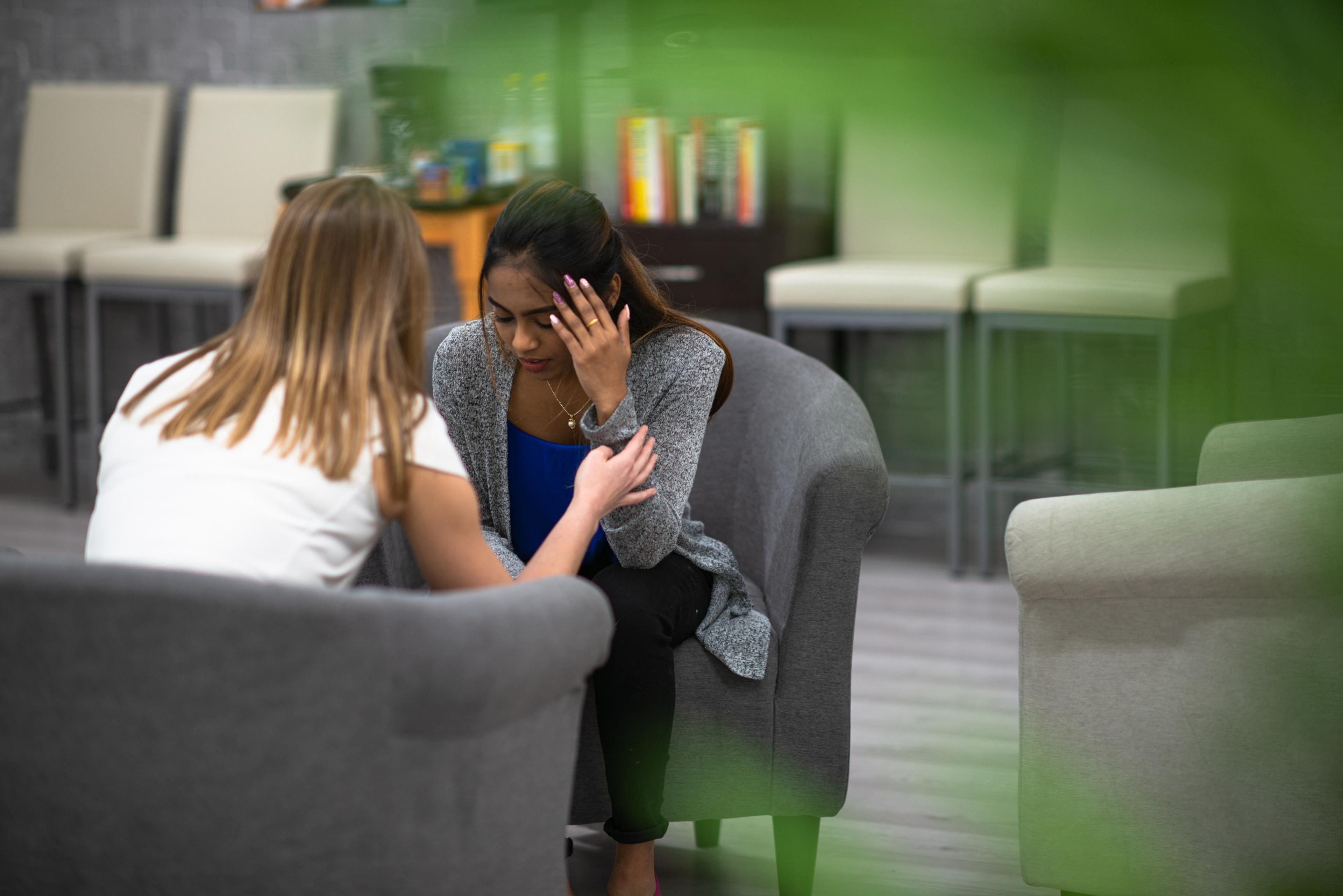When to Seek Crisis Care Services: BCBSM Medical Director of Behavioral Health Breaks Down Different Options
Jake Newby
| 4 min read

Even if you are uninsured, there is a network of 30 Certified Community Behavioral Health Clinics (CCBHCs) in Michigan that can make a life-changing impact on individuals mired in a crisis.
These centers provide access to crisis programming, also known as crisis intervention, which are behavioral health services focused on addressing people’s immediate crises, so that ultimately their overall behavioral health needs are met.
“When a person is in, say, a substance use disorder crisis and they say, ‘I’m going to quit,’ crisis programming centers can provide an immediate response to that,” said Blue Cross Blue Shield of Michigan (BCBSM) Medical Director of Behavioral Health, Dr. William T. Beecroft. “If they go to an emergency room, it may take a very long time for them to be seen.”
While helpful and lifesaving, the facilitation of treatment provided by a general medical hospital emergency department doesn’t lead to the kind of immediate focused care a person facing a crisis, such as suicidal thoughts or substance use, that crisis care can provide. Beecroft said crisis intervention via telemedicine or in face-to-face settings can be crucial to positive health outcomes.
“By utilizing these alternatives to the ER, you are kind of eliminating that step of getting referred to one of those facilities and going directly to the facility,” Beecroft, M.D., D.L.F.A.P.A. “That is a big improvement in time, access and the efficacy, because you are talking to a treating provider. This person is doing a (psychological) assessment of you to treat you. Even though a call center can have a trained professional speak with you, they are not a treating provider, although they can refer you to one of the crisis programs that are local to you, which can be helpful if you don’t know where to go or who to call.”
How specific crisis care services can work for you
If you are covered by BCBSM or the Blue Care Network (BCN), an expanded list of crisis care services are available, including:
- Psychiatric urgent care: Emergency and urgent walk-in and virtual service to address immediate assessment and treatment needs for patients who can’t wait for routine outpatient treatment and care
- Mobile crisis assessment: Emergency mobile mental health assessment and intervention for adults and children in immediate crisis. A mobile unit can be deployed to home, office or emergency department.
- Crisis stabilization: 24/7 recovery-oriented crisis center that offers emergency assessment, intervention and stabilization for urgent and emergent situations.
- Residential crisis treatment: Designed for short-term residential crisis treatment for adults ready to participate in recovery.
Michigan’s 30 CCBHCs provide similar crisis treatment options. Beecroft specifically mentioned the psychiatric urgent care service as an option to consider rather than visiting your local ER when dealing with a crisis.
“Emergency rooms are important, they’re lifesaving. But they are a generic intervention,” he said. “When you have a specific issue that is of a behavioral health nature, it makes the most sense to utilize the very specific crisis option to get that care.”
The mobile crisis response option is available at Michigan’s CCBHCs. BCBSM currently has mobile services available in every county in the lower peninsula.
“With mobile crisis, someone with a master’s-trained provider with peer support can get into a vehicle and come out to your house, your school, your work, a park, your doctor’s office or an emergency room that doesn’t have behavioral health services,” Beecroft said. “They can provide service to you, face-to-face, in real time. Some areas, especially rural counties, can provide this service by telemedicine rather than a vehicle responding to you.”
Beecroft said the medical/surgical analogy for a crisis stabilization unit is an observation unit in a hospital, in which a patient can be thoroughly diagnosed and have treatment initiated on-site.
“A crisis stabilization unit mimics that for behavioral health,” he added. “You’re having a very thorough diagnostic evaluation with a multidisciplinary team, including nursing, psychiatry, masters-level therapists and peer supports. And they initiate treatment for you in an outpatient setting.”
Finally, Beecroft discussed the residential crisis treatment service, and which situations might call for that option.
“The crisis residential programming is, again, similar to a psychiatric hospital but does not have locked doors, most of the time,” Beecroft said. “It is not as stigmatizing as a psychiatric hospital facility is. It can be a significant alternative for people that do not have an acute, life-threatening need for a hospital environment.”
Learn more about Michigan’s CCBH Demonstration Program by visiting this page on the Michigan Department of Health and Human Services website. If you are a BCBSM or BCN member, click here to learn more about Blue Cross’ crisis care, including participating facilities and their information.
Keep reading:
- “It Changed My Life:” Patients Supported by BCBSM’s Strengthening the Safety Net Program Discuss the Crucial Impact of Free Clinics
- How Being Near Water Helps Mental Health
- Aging with Optimism: The Benefits of Positivity and Aging
Photo credit: Getty Images





